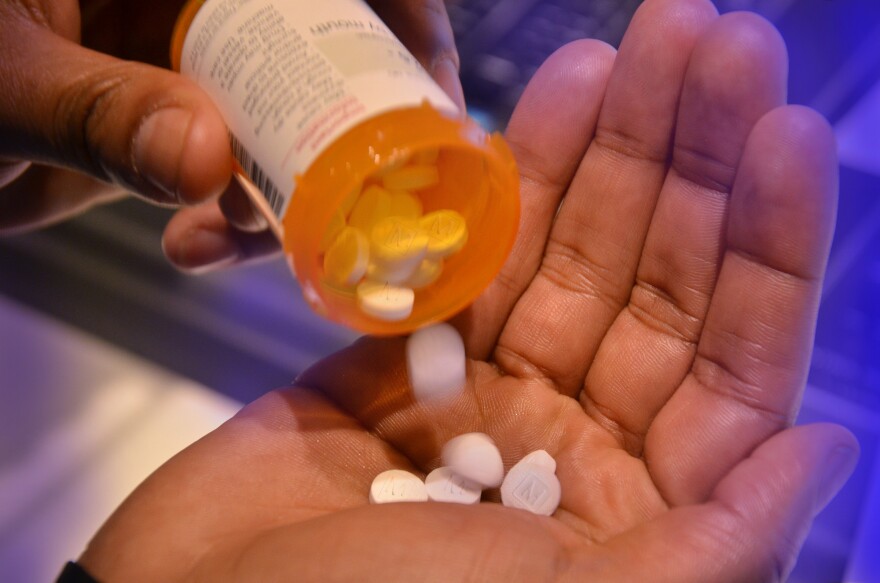Kansas recorded the nation’s second largest percentage increase in drug overdose deaths in 2021, according to provisional data released on Wednesday by the Centers for Disease Control and Prevention.
The data show that drug overdose deaths in the state increased from 476 to 680, a 43% jump. Only Alaska, with a 75% increase, had a bigger percentage increase.
“The problem that we’re facing in Kansas, among many others, is that access to systems and practices that reduce the risk for people who are using drugs are largely absent or they are criminalized,” said Dr. Daniel Warren, an assistant professor at the University of Kansas School of Medicine in Wichita.
“We don’t have and haven’t had things like needle exchange programs and the ability to call 911 without having to fear being arrested.”
Kansas is one of just a few states without a good Samaritan law that encourages people to call 911 by shielding them from prosecution when they witness a drug overdose. It’s also just one of 11 states that doesn’t permit syringe service programs that provide sterile injection equipment to people who inject drugs.
Most of the drug overdose deaths in Kansas — and nationwide — involved fentanyl, a synthetic opioid often mixed with other drugs like cocaine or methamphetamines. Many drug users are unaware that the substances they buy illegally contain synthetic opioids like fentanyl to make them more potent.
“For the last two, two-and-a-half years in Kansas, we have really seen a tidal shift in the opioid world and really the drug world in general, as illicit substances are almost entirely replaced or at risk of being poisoned by fentanyl and other highly potent opioids,” Warren said. “It’s really been a seismic shift.”
The Kansas House last year passed a bill allowing for the decriminalization of fentanyl test kits, which allow residents to test drugs they buy on the street to see if they’re laced with fentanyl. But the bill was blocked in the Senate, with some legislators saying the tests would encourage drug use.
Advocates plan to keep pushing for their legalization, saying the kits will save lives. The kits are legal in about half the states, according to Kaiser Health News.
“We went from prescription opioids to the heroin problem to fentanyl just in the last few years,” said Dr. Jon Siebert, medical director of Valley Hope in Atchison, which treats drug and alcohol addiction. “And so my assumption is fentanyl is the driver on all this."
“Like you see with every other trend, whether good or bad," Siebert added, "the coasts get it first. And then it follows into the Midwest.”
Nationwide, drug overdose deaths totaled over 107,000 in 2021, a 15% increase and all-time record, according to the CDC data. That follows a 30% jump in 2020. Deaths involving synthetic opioids rose to more than 71,000 nationwide, up from nearly 58,000.
“Overdose deaths from synthetic opioids (primarily fentanyl), psychostimulants such as methamphetamine, and cocaine also continued to increase in 2021 compared to 2020,” the CDC said in a news release.
The COVID-19 pandemic was probably a contributing factor to the accelerating pace of overdose deaths, health experts say, although it was by no means the sole factor. They point to the social isolation, economic dislocation and greater difficulty accessing medical and mental health care caused by the pandemic.
The White House issued a statement calling the pace of overdose deaths in the United States “unacceptable” and pointing to its recently announced national drug control strategy focusing on untreated addiction and drug trafficking. The strategy calls for expanding access to naloxone, an overdose reversal drug, fentanyl test strips and sterile needles.





